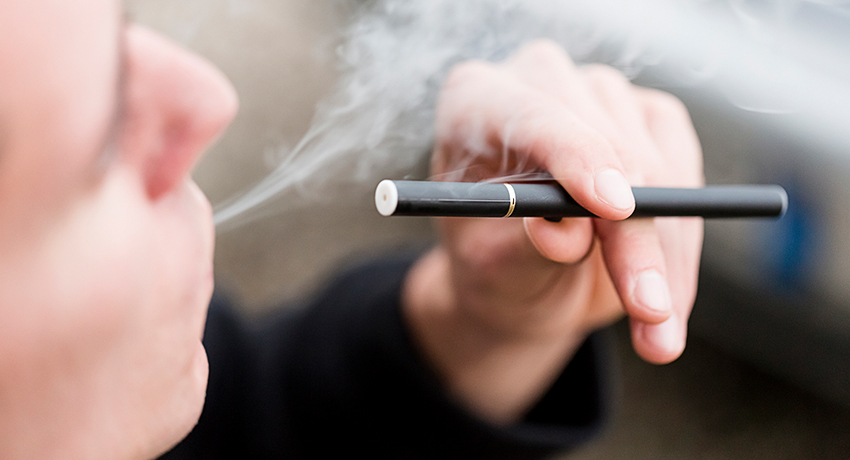Two out of five high school students are actively vaping, according to Pushan Jani, MD, a pulmonary oncologist with UT Physicians. He compares it to cigarette smoking in the 1950s and 60s, when everyone thought it was fine.

“A high number of teenagers in the current generation could grow up addicted to this,” said Jani, associate professor of pulmonary and critical care medicine at McGovern Medical School at UTHealth Houston. “It is the norm, so [teens think] surely it’s appropriate or acceptable since it’s trendy – only to possibly find out years later that it isn’t safe and increases their risk for cancer. History has shown that—when people smoked cigarettes and thought it was perfectly safe.”
Risks of vaping
Jani has discouraging news regarding teens who vape. The effects are not only related to lung issues but extend to brain development, nicotine addiction, the susceptibility to develop other addictions, as well as asthma-related issues.
Lung inflammation – A new medical term was drafted to describe this process of lung inflammation secondary to vaping use: EVALI, which stands for e-cigarette or vaping use-associated lung injury. The American Lung Association revealed the new name in response to a growing number of severe lung illness cases related to using e-cigarette and vaping products, first identified in 2019. A total of 2,807 hospitalized EVALI cases or deaths were reported to the Centers for Disease Control and Prevention (CDC) through February 2020.
The presence of lung inflammation is mostly tied to additives and preservatives added to the nicotine as coloring and flavoring agents. Jani said news reports reveal these dangers can cause lung inflammation, which can be severe enough to cause acute respiratory distress syndrome (ARDS).
“This is a severe form of lung disease where your lungs are unable to exchange oxygen effectively and can lead to death,” Jani said.
The CDC and lung health researchers continue to investigate what is causing EVALI.
I believe if we don’t regulate it, a whole generation may see serious repercussions due to vaping.
Pushan Jani, MD
Brain development — For young adults who start vaping, the products tend to have an inhibitory effect on synaptic development, especially from nicotine vaping. Jani said this involves connections that the brain cells make.
“As you grow older, you do not grow more brain cells, but you grow more connections between the brain cells,” Jani said. “Synaptic formation is hindered with nicotine use. This is where you acquire knowledge and social skill sets.”
Addiction — Nicotine also facilitates teen brains to other kinds of addictions, meaning they are at a higher risk of developing an addiction to alcohol and other drugs. Once they start vaping, Jani said the amount of nicotine in the current vaping products is so high they can develop addictions within 48 to 72 hours of use. The age range vaping the most is 15- to 19-year-olds, Jani said.
Asthma-related complications — Studies also show that teens and adolescent young adults who vape have a higher risk of asthma exacerbations and a higher risk of developing asthma. If they have pre-existing asthma, vaping can cause a higher risk of more frequent symptoms or increase in inhaler use.
Link to cancer?
Experts aren’t able to draw an association that vaping causes cancer, according to Jani, because it’s only been available in the last 10 years. There are no regulations controlling vaping products, unfortunately.
“I believe if we don’t regulate it, a whole generation may see serious repercussions due to vaping,” Jani continued.
Jani believes teens who vape are going to have an increased risk of tobacco addiction throughout their lives. Vaping was initially invented by a pharmacist in China who was creating a product for people in their 60s and 70s who were trying to quit smoking. If a 16-year-old is going to use it, Jani said they are going to have consequences since it was designed for a 60- or 65-year-old.
Most of the cigarette companies, i.e., the tobacco industry, are now focused on more spending on vape products, Jani said, because that’s where the future is going for them. He believes the products demand stricter tobacco control, but it must include online sales in addition to brick-and-mortar stores.



